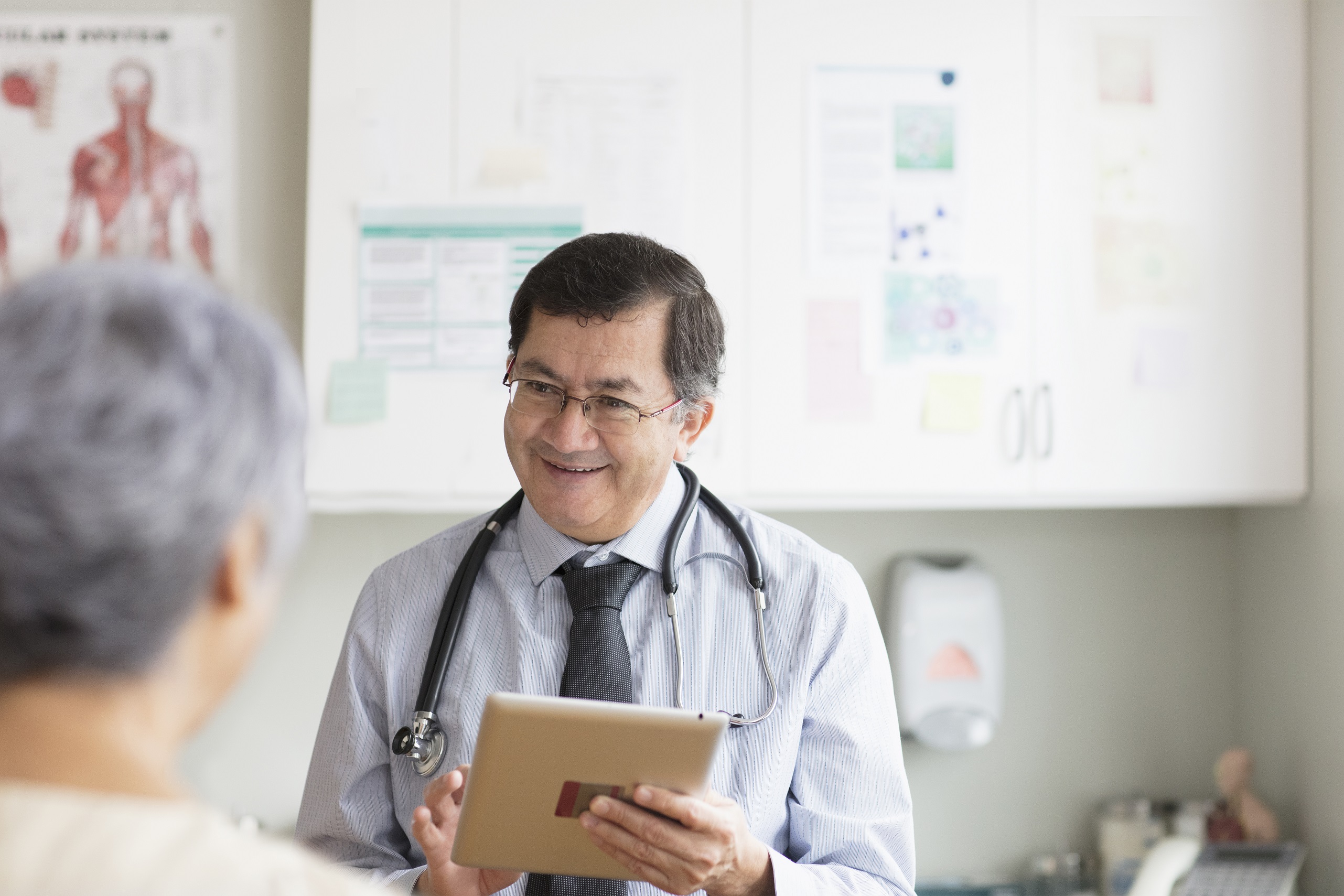Care After Chemotherapy: Your Healthcare Team Can Help
5 min read

Your cancer treatment is over, and you no longer have to visit your cancer care team as frequently. While this is certainly a time to celebrate, you may have questions about settling into your new normal and receiving care after chemotherapy. Your primary care provider can help.
After cancer treatment, your provider can offer psychological support, help you with your long-term side effects from treatments, and come up with a plan to get you living your healthiest life yet.
Rocky Mountain Cancer Centers (RMCC) has a social work team who can provide valuable resources on survivorship and self-care coping tools following chemotherapy. Your healthcare team, including your primary care, can also refer you to appropriate mental health specialists, dieticians, rehabilitation therapists for regaining strength, and other support as needed. Some patients are surprised at their emotional needs when treatment is finished, so having tools in place can help with the transition.
Follow-up Care: Your Path to Sustained Wellness
Follow-up appointments with both your cancer specialist and primary care provider are also a great opportunity for you to ask questions or request support. Typically, you will have follow-up appointments with your main healthcare provider at least every three to four months for the first two to three years. When you meet with your provider for your follow-up appointments, don’t be afraid to ask questions. Nothing is off-limits. Keep a list of topics you want to bring up with your primary care provider during your appointments. Also, make a note of any changes in your health between visits.
Some ideas to talk about with your provider include:
- Any new medications or supplements you’re taking
- Emotional issues you may be experiencing, including depression or anxiety
- Exercise or diet plans
- New or worsening symptoms
- Other health issues you may have
- Pain
You don’t have to suffer in silence. The sooner you bring up any issues you are having, the sooner your primary care provider can address them. Your provider can also help you connect with a network of support services such as those offered at Rocky Mountain Cancer Centers. These services include cancer support groups, nutritional workshops, and classes to help your caregiver enhance the quality of life for both of you during the cancer journey. Your provider can also make sure you stay on track with regular screenings and health maintenance schedules, such as regular mammograms, colonoscopies, and dentist appointments.
Prioritizing Mental Health
When your cancer treatment is over, it can be perfectly normal to worry about every new ache or pain that develops. You may be concerned that your cancer will come back, or you might develop anxiety, depression, or even anger. These feelings are not uncommon, as your life has been turned completely upside down.
One day your main concern may have been getting to the office on time, wondering what to make for dinner, or figuring out the best childcare option for the upcoming weekend. When cancer came into your life, these challenges of daily life did not go away. They were simply compounded with a new and unknown disease that suddenly called your mortality into question. It is enough to cause your emotional well-being to be thrown into complete upheaval, resulting in a plethora of additional conflicting emotions and feelings, including:
 Emotional numbness
Emotional numbness- Fear of your cancer returning
- Guilt from thinking you are to blame for your cancer or from the fact that you survived while sometimes others don’t
- Loneliness
- Devastation
- Sadness
- Stress
- Uncertainty for the future
- Worry over any physical or health changes
Sometimes people who survive cancer can experience positive emotions, too, such as hope and gratitude. Just remember that all of your feelings are valid. Both RMCC and your primary care provider can help you manage negative feelings by providing treatment options such as medications. They can also refer you to a mental health provider and help you find ways to cope when you’re feeling down.
Settling into Your New Lifestyle
Your life will most likely never go back to “normal.” You may experience lingering side effects from your cancer treatment, and sometimes new symptoms can develop months or years after treatment. Your primary care provider can help you come up with a plan to take control of your new normal and reduce your risk for cancer in the future.
While no one can control whether they get cancer or not, you can reduce your risk by making lifestyle changes after your treatment is over. Talk to your primary care provider about after cancer treatment changes like:
- Cutting down on alcohol. Drinking alcohol may increase your risk of certain cancers. Your primary care provider can help you come up with a plan to reduce your alcohol intake to minimal or moderate amounts for health protection.
 Eating healthy. Your healthcare provider can help you come up with a diet that works best for you and your nutritional needs after cancer treatment. Generally, this includes eating lots of fruits, vegetables, and lean protein sources, such as chicken or fish. Dietitians who work with cancer patients often recommend a Mediterranean diet, which has less meat and fewer carbohydrates than a typical American diet. RMCC can refer you to a dietitian to help you establish a healthier diet, particularly for patients with head, neck, and gastrointestinal cancers.
Eating healthy. Your healthcare provider can help you come up with a diet that works best for you and your nutritional needs after cancer treatment. Generally, this includes eating lots of fruits, vegetables, and lean protein sources, such as chicken or fish. Dietitians who work with cancer patients often recommend a Mediterranean diet, which has less meat and fewer carbohydrates than a typical American diet. RMCC can refer you to a dietitian to help you establish a healthier diet, particularly for patients with head, neck, and gastrointestinal cancers.- Exercising. Current physical activity recommendations from the American Heart Association include at least 150 minutes of moderate-intensity or 75 minutes of vigorous aerobic activity per week. Aerobic activity is anything that gets your heart pumping. Your provider can help you develop an exercise plan and make any after cancer treatment modifications you may need. Directly following treatment, you may also need a referral to a physical therapist to help you regain strength before you return to your prior exercise routine.
- Stopping smoking. Smoking is the leading cause of lung cancer, but smoking can cause cancer in other parts of your body, as well. If you don’t smoke, don’t start. If you’re having trouble giving up smoking, talk to your primary care provider. He or she can help by connecting you with resources, offering counseling, and prescribing medications to help you quit. In addition, if you smoked within the last 15 years, it is important to have annual lung screening imaging to help detect early signs of cancer.
Your primary care provider can also help you return to work if that is something that is in your future. They can help make sure you are medically able and ready to return to work after cancer treatment, and let your employer know of any accommodations you may need.
Should You Take Supplements After Cancer Treatment?
Because supplements often contain higher levels of vitamins than are typically recommended, some providers suggest supplements can do more harm than good. Talk to your primary care provider to see if he or she recommends you take a certain supplement.
Learn more about how we support our patients during and after cancer treatment.